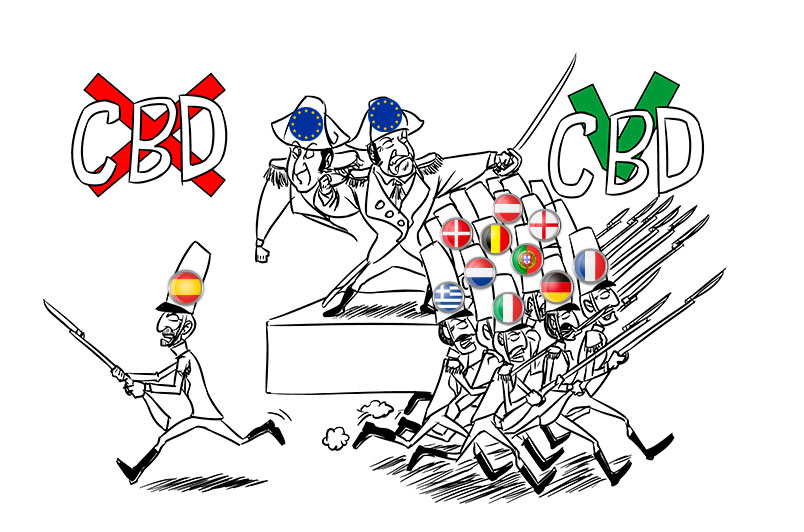Arnau Alcaide
The European Union confirmed on December 6th, through an official statement by the European Commission, that CBD should not be considered a narcotic substance, and resumed studying the requests to commercialise food products containing it. The announcement is based on the recent European Court of Justice judgement in the case of a Czech company against France, but the decision had been ratified previously, on December the 2nd, Tuesday, when another company received a communiqué from the EU saying that the review of such petitions was to be resumed. The company had requested registering a food product containing CBD.
The permission for new CBD food products, under more thorough analysis than normal food products, were being sent though not approved since the natural molecule was classified as subjected to novel food in January 2019, but the process stopped this summer in light of the possible reconsideration of CBD as a drug. The fear for a change was based in the fact that any extraction from a controlled plant is a method of production that is listed on the Narcotics Convention Schedule 1. This arbitrary control over the methods, not the compounds (the equivalent synthetic molecule is not controlled) was one of the WHO recommendations that were not approved on Tuesday: it suggested eliminating extracts and tinctures from the Convention.
The statement that arrived on December the 2nd gives practical effect to the renewed business security of CBD and clears the way to the approval of foods. The communiqué was also simultaneously directed at the European Hemp Industrial Association (EHIA) in order to disclose the new interpretation of the norm. And timely, because on that same day the UN did not include either the exception that clarified that extracts and tinctures with a lower than 0.2% THC content were exempt of monitoring. This way, even if the interpretation of the rule has not evolved internationally, the European position is clear, leaving no option for a short reclassification of cannabis to cast doubts. Commercialization of the oil will still be allowed, even though, for the moment, as a cosmetic or for industrial applications.

Spain banned tobacconists from selling it on November 27th, when there was already jurisprudence against such prohibitions
With Circular 3/2020 of November 27th, the Commission for the Tobacco Market referred to the hemp plant as (controlled) cannabis and denied the flowers could be “produced or distributed”, without the authorization from the Medicines Agency, thus contradicting lightly the previous judgement of November 19th, which has been ratified with the official interpretation this week, as explained in this article.
Spain makes its own interpretation of the parts and uses of the plant that are recognised by the Agriculture and Common Market treaties and explains that food wise, only those products derived from the seeds are allowed, not including products that have since been seized, like vaping cartridges, cosmetics or aromatic products.
The circular threatens the tobacconists by reminding them that having communicated through official means that they were going to sell CBD previously to this notification does not exonerate of the legal prohibition, and therefore the unallowed sale will be sanctioned, even criminally sanctioned, as if it was a narcotic. This constitutes an extreme challenge to the EU resolution. Spain has carried out unjustifiable seizures, but this frontal questioning of the interpretation is a huff that could soon be responded by Competence, National or European.
The judgement that has now been ratified officially, stating the CBD is not a narcotic substance, was clear: “a member state cannot prohibit the commercialisation of cannabidiol legally produced in another member state when extracted from a whole cannabis Sativa plant and not only from its seeds and fibers”.
